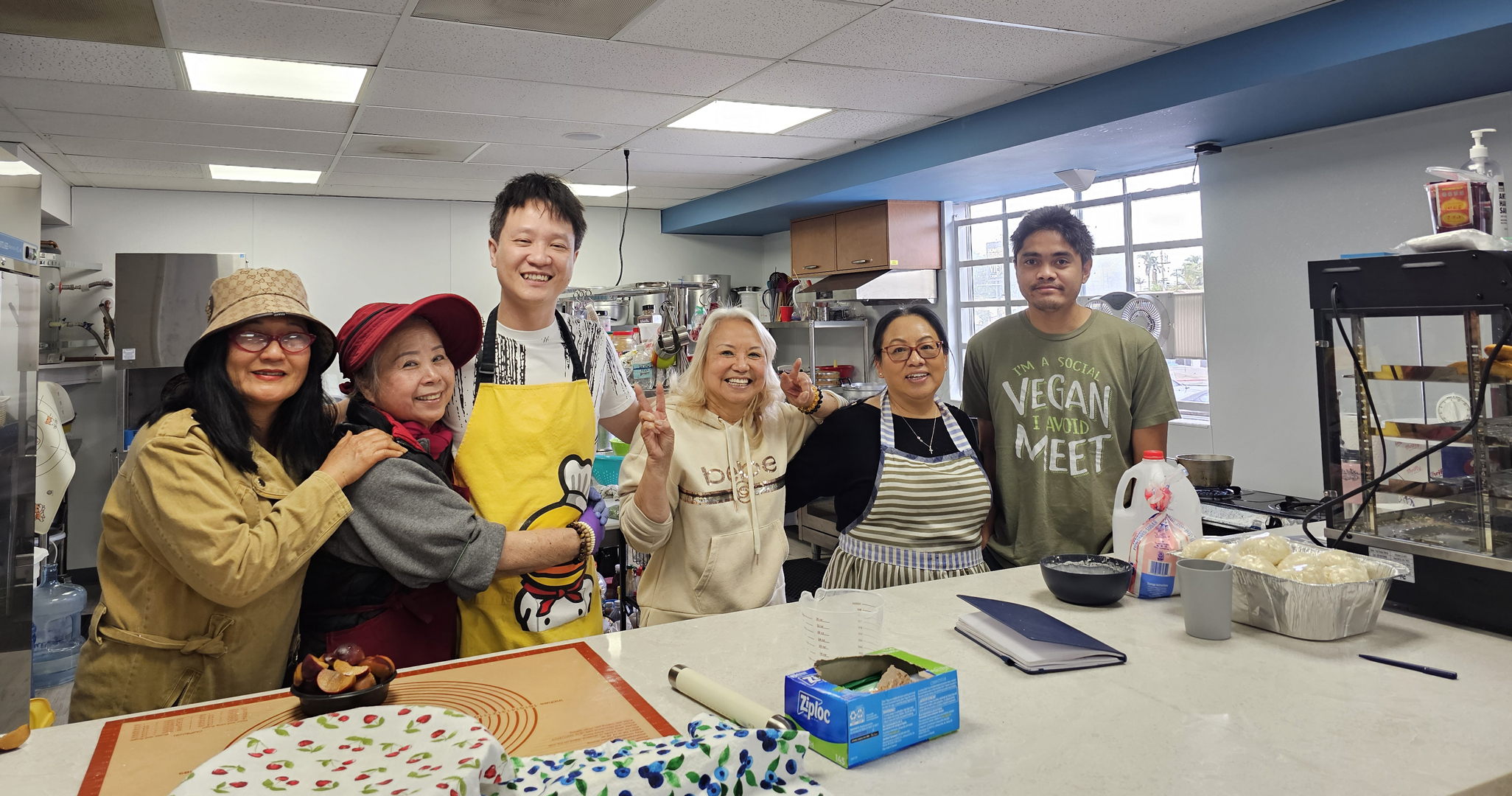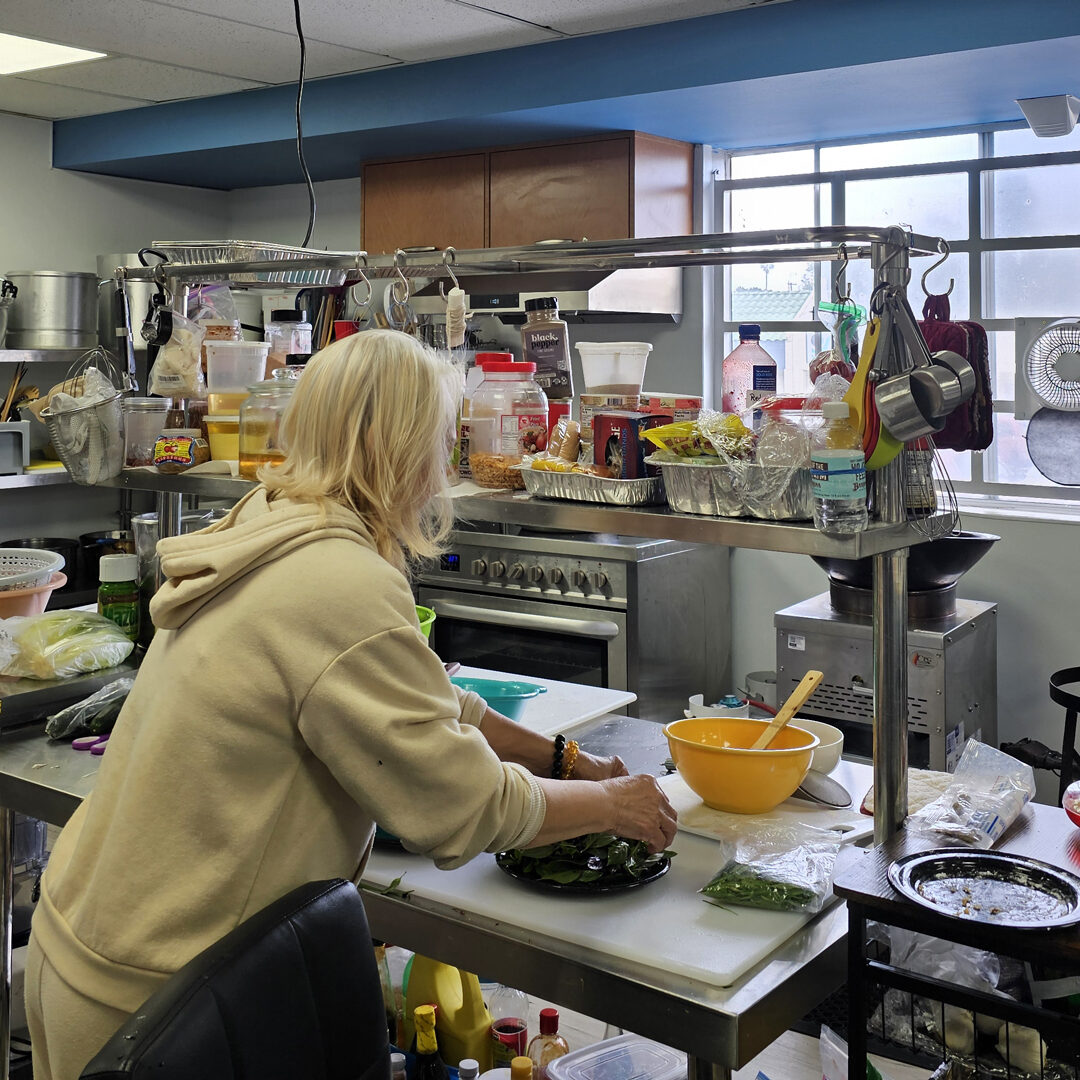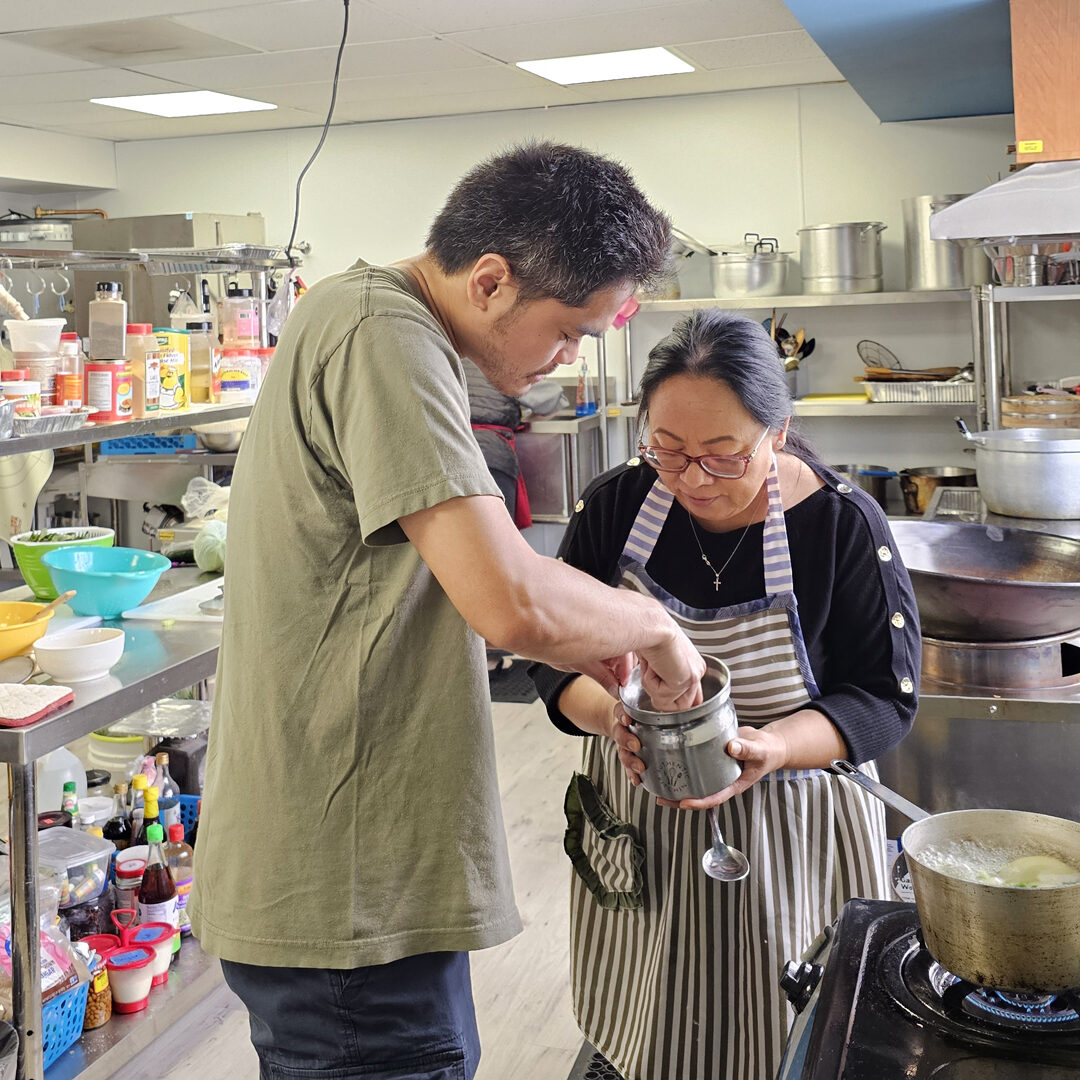Stop the Hate
Cultural Celebrations Provide a Steppingstone to Services in City Heights

Every day, an eclectic mix of seniors and young adults gather for a communal meal at the City Heights offices of the Union of Pan Asian Communities (UPAC). Participants were particularly eager to join a recent vegetarian cooking workshop highlighting the versatile meat alternative seitan and how it could be incorporated into a variety of traditional Vietnamese dishes. The meal was an all-around hit for participants, including elderly Vietnamese and younger adults of varying ethnicities, vegetarians and non-vegetarians, practicing Buddhists and non-Buddhist members alike. Many in the workshop also belong to UPAC’s East Wind club, which serves Asian Pacific Islander and other ethnically diverse adults and transitional aged youth living with a mental health condition. And while the menu changes, the goal of UPAC’s communal meals, workshops, and cultural celebrations remains the same: to ensure everyone feels truly welcome.
Cooking workshops, social gatherings, and even group art projects may seem like unusual offerings for a health and human services nonprofit, but at the Union of Pan Asian Communities, these services provide a critical steppingstone to health for many of the organization’s refugee and immigrant clients. UPAC operates its Bridges to Wellness program in collaboration with United Women of East Africa Support Team (UWEAST), serving families primarily from San Diego’s Asian and East African communities. Through workshops, multicultural celebrations, and wellness navigation services, this jointly operated program focuses on breaking down isolation among San Diego’s Asian and East African immigrant and refugee communities. Bridges to Wellness offers a culturally and linguistically welcoming space to begin seeking help for trauma, mental health, substance abuse, and more.
“It’s a good first step to get into other programs,” shared UPAC Program Coordinator May Vang. “Sometimes it’s really difficult to connect people to health services. They are fearful, afraid to be rejected or that they’re not qualified.”

Crossing the Bridge to Wellness
Once someone has taken that critical first step to engage with UPAC, the fear of seeking help begins to melt away. With a multicultural, multilingual staff speaking 30+ languages and dialects and providing services in more than 20 of these languages, the UPAC team is quite literally built to be as welcoming as possible to San Diego’s immigrant and refugee communities.
UPAC clients have access to an array of direct services around mental health for both adults and children, substance addiction/treatment, and even community engagement, business development, and housing services. Beyond that, staff work with clients to connect them with other resource providers and services that UPAC may not offer in-house.
They also advocate for clients interacting with County of San Diego programs, which is an important distinction from the by-phone translation service offered through the County. UPAC Wellness Navigators are deeply familiar with both San Diego County’s services infrastructure and the needs of their clients, enabling them to go beyond word-by-word translation to ensure individuals get access to the specific services they need.
In other circumstances, refugee and immigrant community members may hear about public health services or programs, but they aren’t sure where to go. Older people who don’t have email or access to other technologies may not know how to submit documentation or inquiries online. It’s not unusual for UPAC’s Wellness Navigators to drive elderly clients directly to local offices to help them with this kind of follow-through.
An Environment of Trust and Connection
Creating an environment of trust and safety has proven critical to meeting the needs of this population, and UPAC’s monthly multicultural celebrations play an important role in helping clients connect to staff and other community members.
“The demographic we serve in City Heights is a lot of sponsored non-citizens, so the US system is new to them,” explains UPAC Wellness Navigator Vivian Nguyen. “Bridges to Wellness helps them feel less scared to find counseling or access health services. It gives them a sense that they can seek help here.”
UPAC team members often find themselves working to counter hearsay in immigrant and refugee communities, for example, assuring people that seeking health services or benefits to which they are legally entitled will not impact their visa status.
“Bridges provides a safe space, one where people aren’t afraid to disclose sensitive information,” shared Vang. “We support resilience. We need it in times like this.”

During monthly multicultural celebrations, community members reflecting an incredible variety of Asian and East African cultures and speaking many different languages come together joyfully to share food, art, and laughter. And while participants cannot always understand the words others are saying, the gatherings provide a warm, welcoming, and safe place for anyone of different backgrounds.
“We have the human language,” shared Vang. “If you show respect to others, you can understand each other.”
Countering Fear with a Practical, Culturally Attuned Approach
When it comes to safety, the UPAC team recognizes that knowledge is power. As ethnically motivated hate crimes spiked in San Diego during the pandemic, UPAC’s reputation as a safe community space made it an important hub for support among Asians and other immigrant and refugee communities in San Diego. UPAC held meetings with community members about personal safety measures they could put into use to protect themselves, including carrying a whistle and walking with a partner. And more recently, as Immigration and Customs Enforcement (ICE) stops have become more frequent, the UPAC team distributed Know Your Rights cards to its members and clients in a variety of languages.
In a rapidly shifting political environment, UPAC’s ability to step in quickly with reliable information and practical guidance has made the organization a critical resource in City Heights. Getting connected to UPAC’s mental health services and other programs has helped clients reduce the impact of trauma directly or indirectly borne out of a climate of fear. And UPAC’s cultural events and workshops have proven to be a valuable underpinning of their direct services: steadily building connectivity among historically isolated groups, increasing community resilience, and promoting culturally acceptable help-seeking behaviors.
The Union of Pan Asian Communities (UPAC) is a grantee partner of the statewide Stop the Hate program, funded through the California Department of Social Services. Catalyst of San Diego & Imperial Counties serves as the regional lead for grantees across the Southern California Border Region. Learn more about UPAC and other San Diego and Imperial County-based nonprofits working to stop the hate at catalystsd.org/stopthehate/.